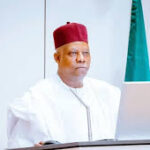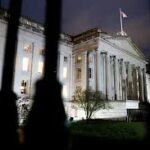Amid the temporary halt in hostilities between Israel and Iran, experts at Lagos State University (LASU) have cautioned that the recently announced ceasefire does not necessarily mark the end of the conflict, stressing that deeper geopolitical tensions remain unresolved.
Speaking at a symposium organised by the LASU Centre for Peace and Security Studies, themed “The Israeli-Iranian War, 2025: Issues and Implications,” Professor Adewumi Falode, Director of the Centre and a scholar of History and International Studies, warned that the concept of victory in modern warfare varies between nations and is often subjective.
His remarks come just days after U.S. President Donald Trump announced via social media that both Israel and Iran had agreed to a ceasefire, pausing nearly two weeks of intense, technologically sophisticated airstrikes between the two nations.
According to Falode, while the ceasefire offers a momentary break in violence, it does not eliminate the underlying strategic rivalry, especially concerning nuclear capabilities. He noted that nuclear deterrence, rather than actual use, shapes much of the geopolitical standoff.
“America claims it wants to prevent Iran from building a nuclear weapon, but if Iran acquires one, the balance of risk shifts. That’s the logic of mutual assured destruction. The U.S. has more to lose. That’s why states seek nuclear arms—for strategic security,” he said.
Falode drew comparisons with North Korea, noting that while it has developed nuclear weapons, its lack of a reliable delivery system limits its threat. In contrast, he pointed out, “Iran already has delivery systems. Once they obtain the bomb, they become a formidable force.”
He further revealed that intelligence suggests Iran and North Korea are collaborating, with Iran assisting in missile development and North Korea sharing nuclear technology.
Also contributing to the discourse, Professor Abolade Adeniji from LASU’s Department of History and International Studies raised concerns over Iran’s apparent diplomatic isolation during the conflict.
“Where are Iran’s allies?” he asked. “In today’s world, no nation fights alone. Even Iran’s neighbours seemed to quietly support Israel. That’s a significant strategic disadvantage.”
Adeniji questioned the strength and motives of U.S. support for Israel, warning that while it appears robust, it may be speculative and self-serving. He argued that Israeli Prime Minister Benjamin Netanyahu’s broader objective—regime change in Iran—remains unachieved, and thus the conflict may yet reignite.
He also criticised what he described as the United States’ disregard for international law, stating, “The realist school of international relations sees power as the ultimate principle. If a smaller country had launched such military strikes, there would have been sanctions. But the U.S. knows it can act unilaterally without consequence.”
Citing the U.S. justification for military action based on suspicions that Iran possesses weapons of mass destruction, Adeniji said, “These are speculations. There’s no concrete proof Iran has these weapons or intends to use them. Yet, preemptive action is taken based on that assumption.”
The scholars concluded that while the ceasefire may offer a temporary pause in active combat, the core issues—regional power struggles, nuclear deterrence, and geopolitical alliances—remain unresolved, making a return to hostilities a lingering possibility.









